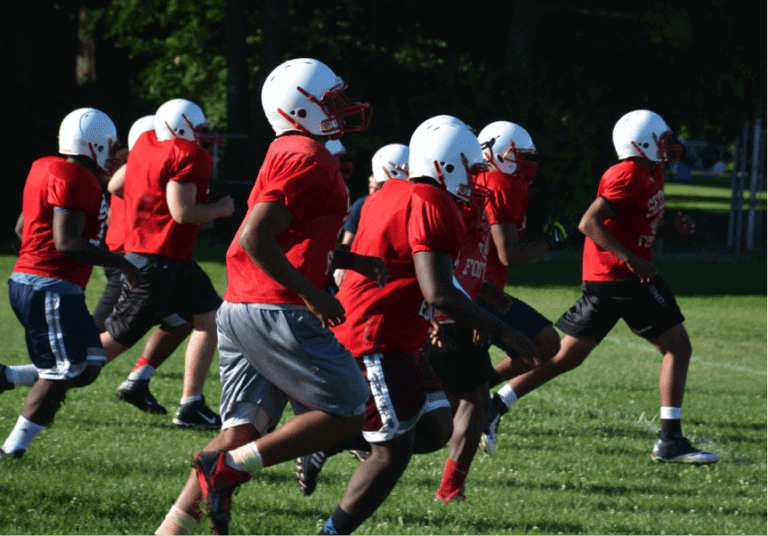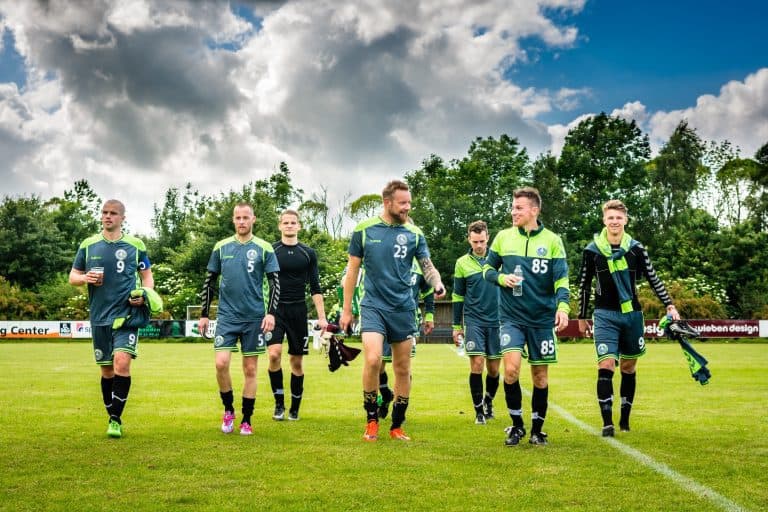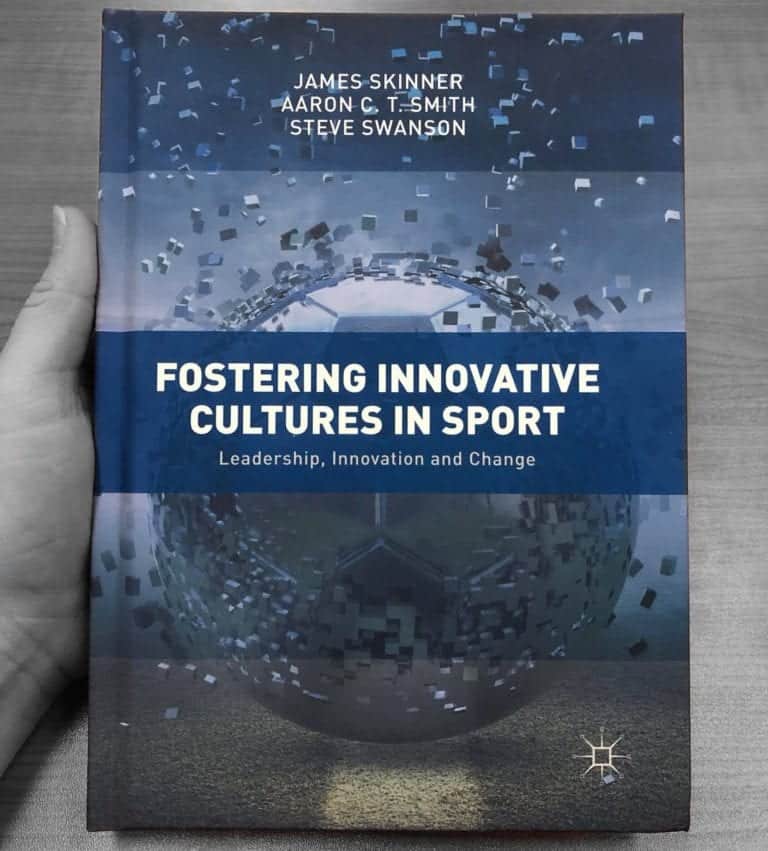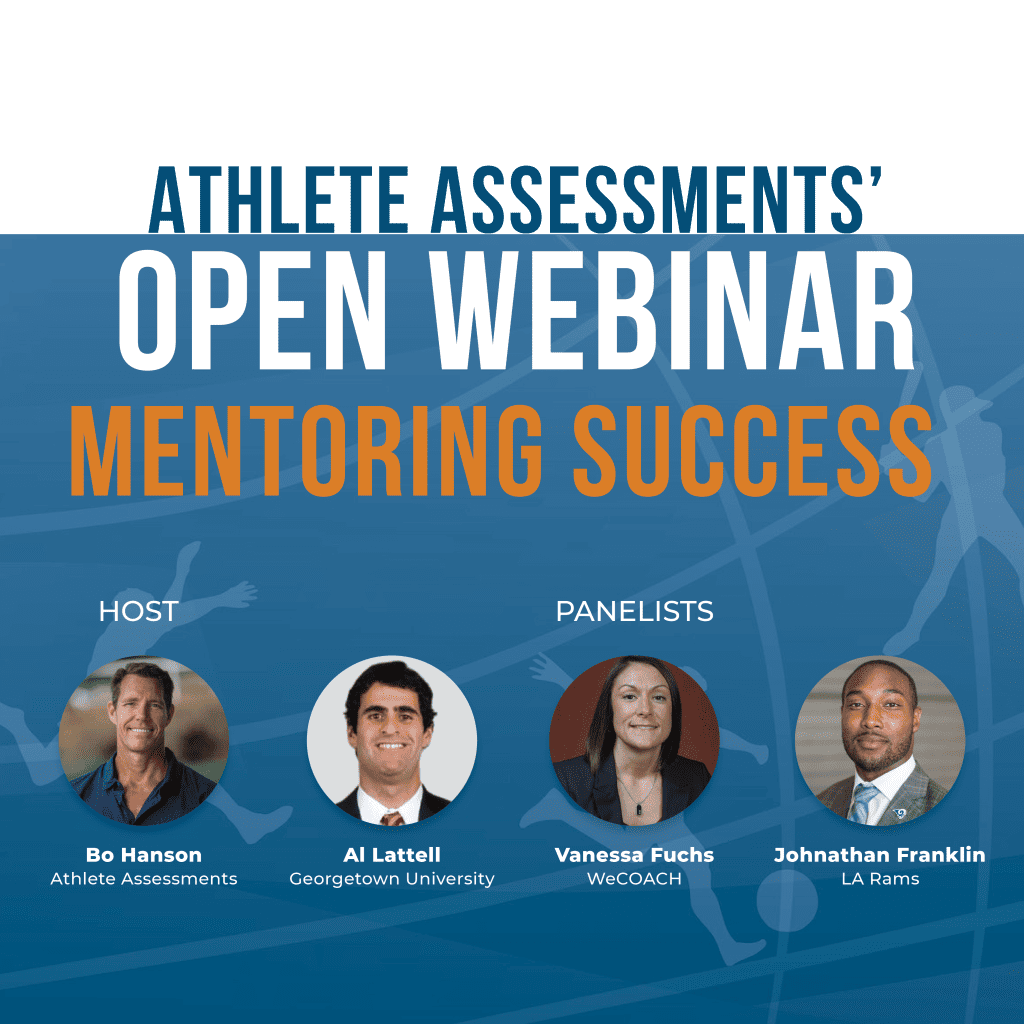
Recapping the immersive and interactive discussion in our Open Webinar on ‘Mentoring Success’, our panel unpacked the ever-popular, and important topic of mentoring as a three-dimensional platform for growth. Presented by 4x Olympian, 3x Olympic Medalist, and Athlete Assessments’ Founder, Bo Hanson; the webinar featured an exceptional panel of experts, Vanessa Fuchs, CEO of WeCOACH; Al Lattell, Executive Director of Athlete Leadership at Georgetown University; and Johnathan Franklin, Director of Social Justice & Football Development at the Los Angeles Rams.
Mentoring relationships quite often extend well beyond the timelines or confines of a formal program structure and each of our panelists generously shared their unique mentoring experiences from both a personal and professional perspective. The panel, who have each played the role of mentor and mentee at some point in their lives and careers, took a deep dive and examined some of the key issues surrounding the subject, what they’ve found to be most effective within different approaches. This article captures just a few of the topics the panel touched on. If you are working on your organization’s mentoring program or are just interested in the issue, the webinar is a must watch!
Why mentoring, what’s the long-term impact?
Bo, who has his own experiences in mentoring as a competitive athlete, coach, and facilitator, asked the panel what they see as being the long-term impact of mentoring on organizations and individuals.
Setting the tone for the webinar, Vanessa shared her philosophy of ‘lift as we rise’ which emphasizes the role all leaders play in bringing through the next generation of leaders; continuing,
“I’ve found mentoring not only impactful for myself, but it’s just incredibly rewarding to be actively involved both as a mentee and a mentor, in different informal and formal mentoring capacities.”


Looking at mentoring from the lens of student-athlete development, Al shared his perspective on the way mentoring has the power to draw an entire athletics department together, sharing,
“The greatest need among our student-athletes is for connection. They need to develop relationships with people that they feel comfortable with, that they trust and that are outside of their sports.”

At the LA Rams, Johnathan and his team are changing the trajectory of the lives of young people from the surrounding LA community through the Pathway to Success Program, emphasizing their impact,
“The greatest need among our student-athletes is for connection. They need to develop relationships with people that they feel comfortable with, that they trust and that are outside of their sports.”
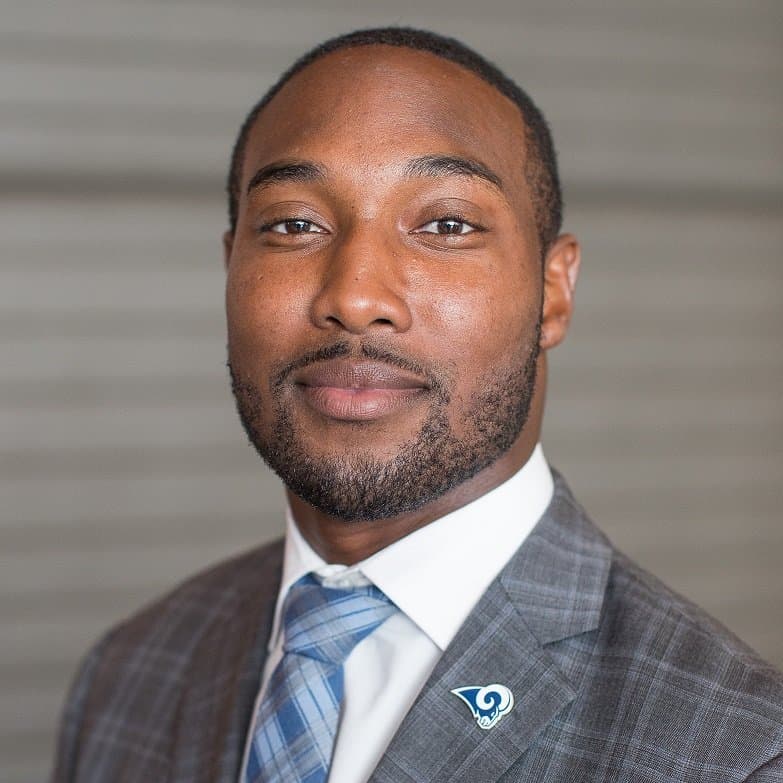
When is the right time for mentoring?
Bo emphasized throughout the webinar the power of being ready to receive information, sentiment Al reiterated as being a cornerstone of his program at Georgetown. Both noted that mentoring is not something that can be forced on anybody, but instead is most effective when individuals reach out to a possible mentor, apply for or enroll into a mentoring program, or connect with someone they think could help them, then they are likely in the right mental space. Bo shared a favorite quote, ‘The teacher will arrive when the student is ready to receive’.
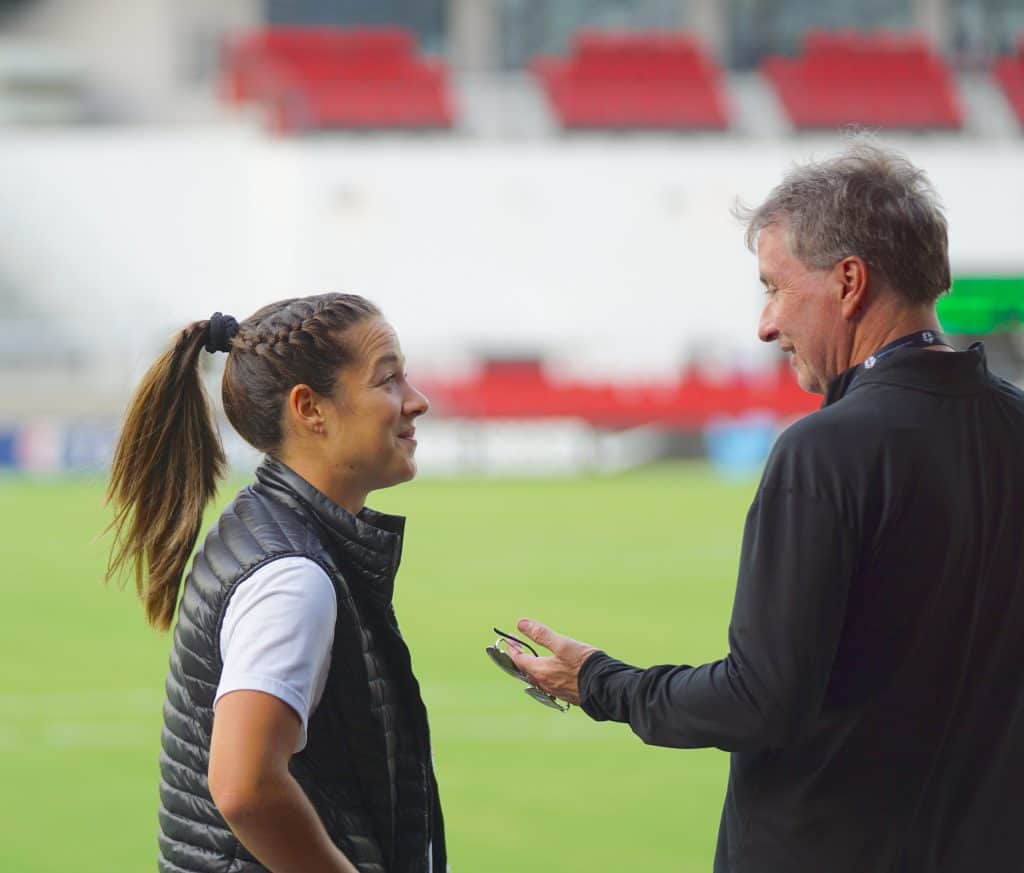
Vanessa summed it up simply,
“For mentees, I think your role is to be a sponge, but also take some proactive initiative in that relationship with your mentor so that you’re the one that’s proactive in reaching out and scheduling time to connect.”
Reflecting on his own experiences Johnathan added,
“Being a mentee is understanding as much as you can from the mentor, to lead you, to guide you to see something that you don’t always see in yourself.”
In addition to his professional role Johnathan also brings invaluable personal experience; his own life changed course in matter of seconds seeing him completely redirect his career path. Just months after he was drafted straight from college into the NFL by the Green Bay Packers as a running back, four games into his rookie season, an on-field tackle forced Johnathan to medically retire.
Giving us an insight into his thought processes when life changed dramatically, he shared,
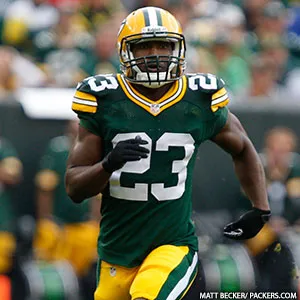
“I was trying to figure out what are the next steps in life? What is that journey? And I didn’t have a clue. Yet, I’m grateful that I had individuals organically come into my life and ultimately become a mentor. And many of our conversations were very informal, but they gave me the guidance and the steps necessary to become a better version of myself. It really changed my mentality in those moments.”
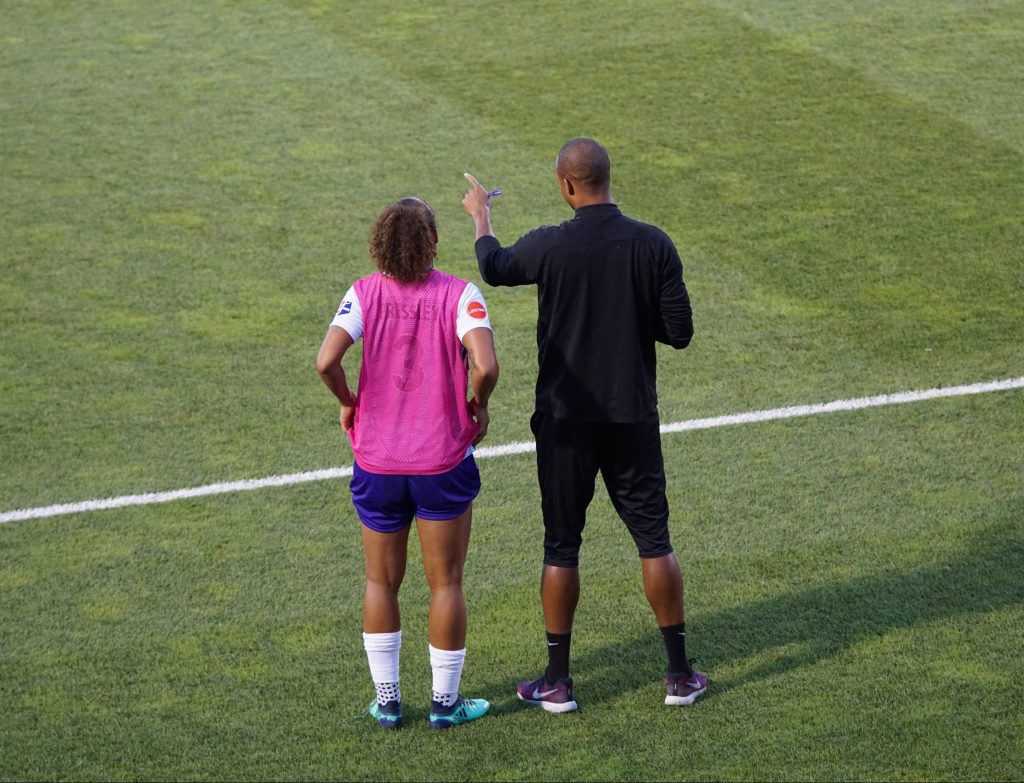
Building on Johnathan’s insight into what it is to be a mentee, Al reflected that leadership, at its core is fundamentally about guiding your followers to believe in themselves. Accordingly, his number one question for anyone entering a mentoring or a leadership role is,
“How can you get someone to believe in themselves when they don’t?”
Explaining that when people believe in themselves, you can influence actions and motivate in ways that they didn’t think was possible.
How do our panelists prepare for success in their programs?
The very nature of mentoring relationships mean that individuals at different stages of their lives professionally and quite often personally, are paired up. Bridges and bonds may not occur naturally, so the challenge becomes developing effective relationships quickly.
Johnathan shared an insight into how they prepared at the Rams,
“Typically, you would think that high level executives know how to mentor someone, but what we learned very quickly was that wasn’t the case. We had to come up with the structure, the guidelines, the talking points, and create the environment.”
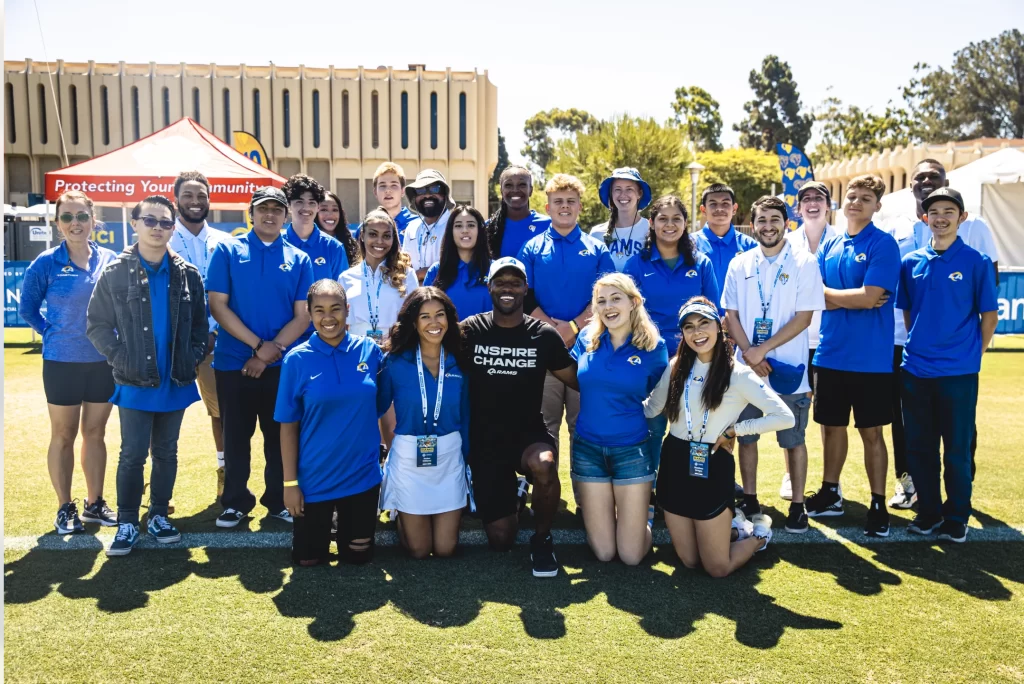
“We understand the deeper the connections, the better the results. So, if we can deepen connections very fast, we can have great results long term.”
The panel affirmed this need to build functional relationships quickly between people who come together in their programs, and in order to support them in doing this, they each lean on Athlete Assessments and the use of our DISC Profiles in a way that is meaningful to their programs. Consistently across the programs, each mentor and mentee complete their own Athlete Assessments DISC Profile which results in a 40-page report outlining their unique spread of strengths, preference for pace, the way they approach tasks, communicate, and build relationships with the people around them. This self-awareness and the framework of DISC then provides a platform for understanding others – an invaluable starting point for building effective relationships.
Should mentoring be informal or formal?
Some people actively seek mentors to be informally involved in their life through simply taking initiative, seeing the opportunity, and knowing it’s important to their development. Others need to put a formalized structure around mentoring, whether to provide them with the opportunity to obtain a mentor, or simply it is most conducive to their development.
So, when do we need to develop a program?
The panelists agreed that there is definitely a place for both situations, Vanessa stating,
“I believe because each person is so unique and has different preferences both situations are perfectly appropriate.”
She continued,
“I think it’s really important to make time for those informal mentoring opportunities, whether it’s a student-athlete, a coach, or a young professional looking for some career advice. I have always prioritized meeting with an individual who asks for my time, because not everybody is willing to ask, and quite frankly I think proactively reaching out and trying to establish informal mentoring relationships actually sets people apart. Not everyone is willing to invest in themselves.”
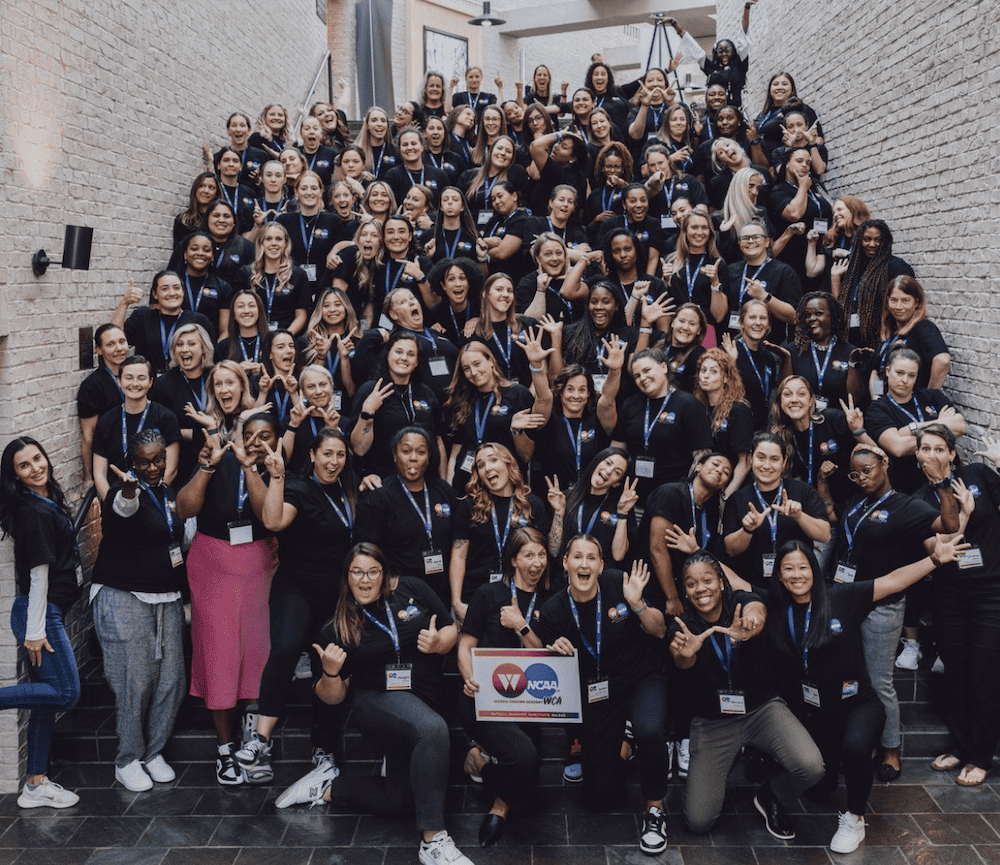
Vanessa also detailed WeCOACH’s approach to formal mentoring which was established after research revealed a pattern of women dropping out of professional coaching when their experience reached around seven to ten years (usually 26-33 years old). WeCOACH is leading the sports world to recognize, educate, and promote women coaches, and in addressing this challenge, they developed a pioneering eight-month recurring mentoring program based around trio groupings.
The program sees rookie or ‘bronze’ level coaches paired with coaches in the ‘at risk of leaving’ group which in program terms is the ‘silver’ level, along with experienced coaches, with 10 or more years, classified as they ‘gold’ level. The program’s infrastructure includes monthly education sessions by industry experts, formal and informal elements. Gold level members receive discussion prompts to help facilitate conversations around a series of concepts including communication, generational understandings, coach administrator best practices, and managing mental health situations.
Vanessa added,
“Mentoring develops and sustains powerful relationships across multiple different sports. We hear often from our community that they remain in touch with coaches or administrators they met in the program.”
At the Rams it is unlikely that mentors and mentees of the Pathways to Success program would cross paths outside of it as the program pairs high school students from surrounding inner city LA communities with Rams staff working on the business and football side of the organization to provide access and a look into potential careers in sports beyond the on-field roles. Johnathan continued,
“The program helps all mentees understand that success looks different for all of us. We all have the opportunity to define our own success, the program looks to reassure our mentees that it’s okay to walk upon your own pathway by sharing personal experience.”
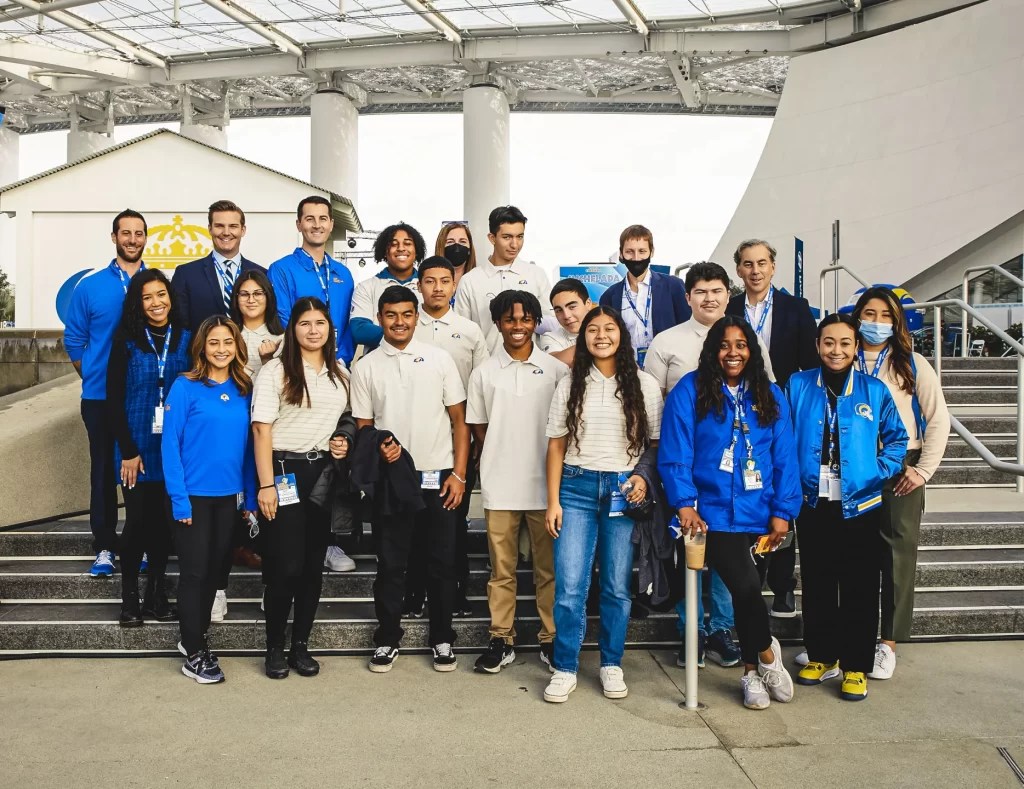
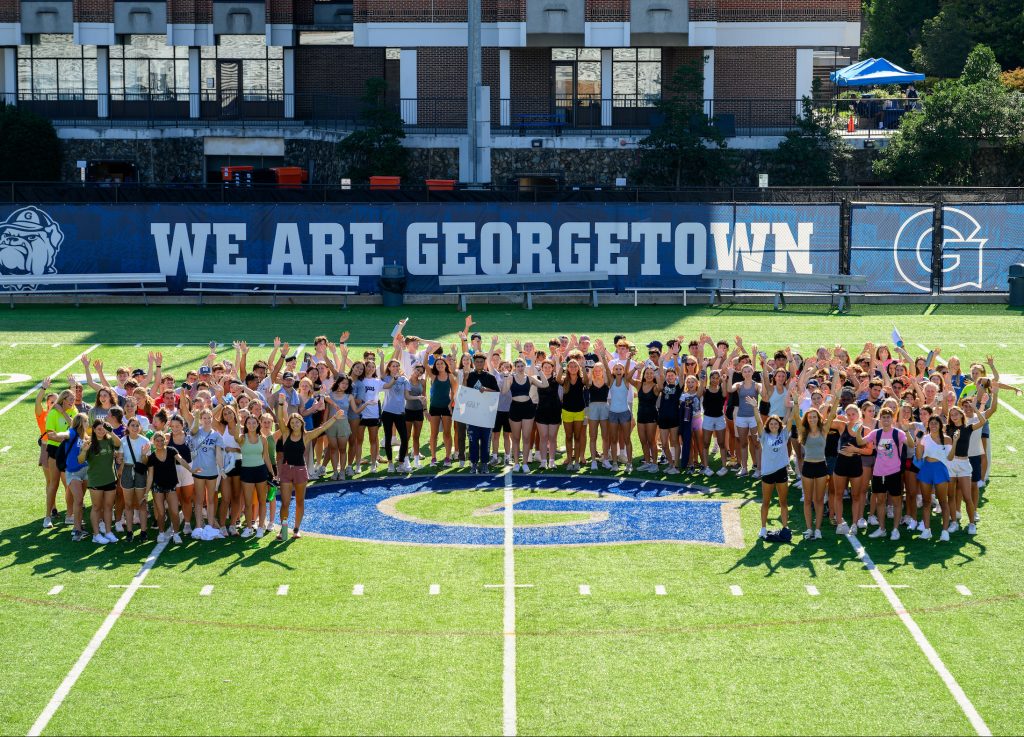
At Georgetown University, Al delivers a leadership program to enhance the student-athlete experience, shaping relationships, and developing skills which are used both in their sport and beyond. The program operates throughout the student-athlete’s four years at university, with Al sharing,
“My goal with the mentoring program was two-fold; one was to create the space where athletes have people that they can turn to, and the second piece is to have a platform for our emerging leaders to start using the skills that we’re talking about.”

The Georgetown mentoring program partners student-athletes from different sports and different years, with the everchanging cohort students have the opportunity to experience being both the mentee and mentor as they progress from Freshman to Senior. Al noted that often at the collegiate level, there is a tendency for teams to stick together and athletes do not connect outside their sport, so the mentoring program works to expand these connections. Rather than dictating the nature and content the mentoring relationships should cover, Al focuses instead on creating opportunities for those relationships to evolve organically, sharing an example activity he suggests is for pairs to watch and support a team outside of their discipline (e.g., a rower and lacrosse player pair could go and watch a softball team).
Qualities of a Mentor
Reflecting on the input that redirected their career or gave them belief in themselves, each panelist put forward their thoughts on a non-negotiable quality that a mentor needs to have.
- Empathy: Understanding what somebody else is going through and being able to put yourself in their shoes
- Honesty: Helping a mentee see blind spots, honest feedback will only ever be intended to help the individual be even more successful. When it comes to honest feedback, it’s a mentees responsibility to make those conversations easy to have.
- Generosity: Freely sharing information and experience can change the trajectory of someone’s career. Making time to serve others is also an act of generosity.
- Selflessness: Making the time to develop others with no thought of individual return
Do mentors need to be accomplished or recognized as successful?
Among the reticent you can often hear cries of, “I can’t possibly be a mentor, I haven’t achieved enough” or “I’m not successful enough”. The purpose of mentoring is not to relive our highlights reel or reinforce our own previous experience, so the answer is no, if you think of yourself as a work in progress, you could be just the candidate your mentoring program is looking for.
A valuable aspect of mentoring is to provide a sounding board, it is not always the role of a mentor to provide advice and solutions but to ask the right questions. Additionally, we can learn a lot from someone’s mistakes, as Al explained there are student-athletes who might have dug themselves into a hole, and another sharing their experience, the processes, and thoughts which led to it are valuable tools from their own experience in it, allows another to make different choices. What you did or didn’t experience can be a powerful force to shape behavior.
Troubleshooting: What if valuing mentoring is not established in your culture?
So you’ve suggested or developed a mentoring program for your organization, but you are not getting the ‘buy-in’ that you need from others. The panel unpacked the mechanics of stimulating the concept of valuing mentorship and in response Vanessa reflected on the way WeCOACH embeds the the ‘Lift as you Rise’ philosophy within their culture. More than just principal or a value, it underpins the organization, it is a foundation to remind members that mentoring is not only impactful for the individual but an obligation and necessary for the longevity of the organization. Vanessa also suggests using peers like past program participants or senior executives to tell prospective mentors about how positive their experience has been.
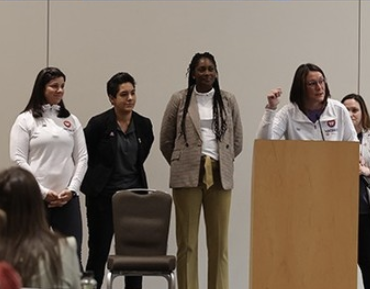
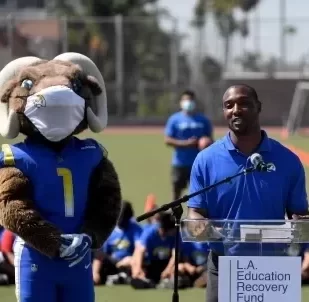
At the Rams, Jonathan shared how he emails the organization telling staff of the value of the program before he asks for volunteers. He says,
“It’s helping people see the reality of the community we serve. We start with a real sense of why this is so important and the impact the program will have.”
By the time it comes around to asking for volunteers to mentor in the program Johnathan says of his people,
“They want to lead, they want to invest, they’re willing to make the time.”

We were so inspired by each of our panelists, and we wanted to leave you with Jonathan’s thoughts on mentoring to remind of the impact we can have as mentors,
“When you think about the humility and boldness life takes and sometimes, we just take a leap of faith. I’m grateful for the mentees and mentors that push me beyond my limitations and allow me to truly develop.”

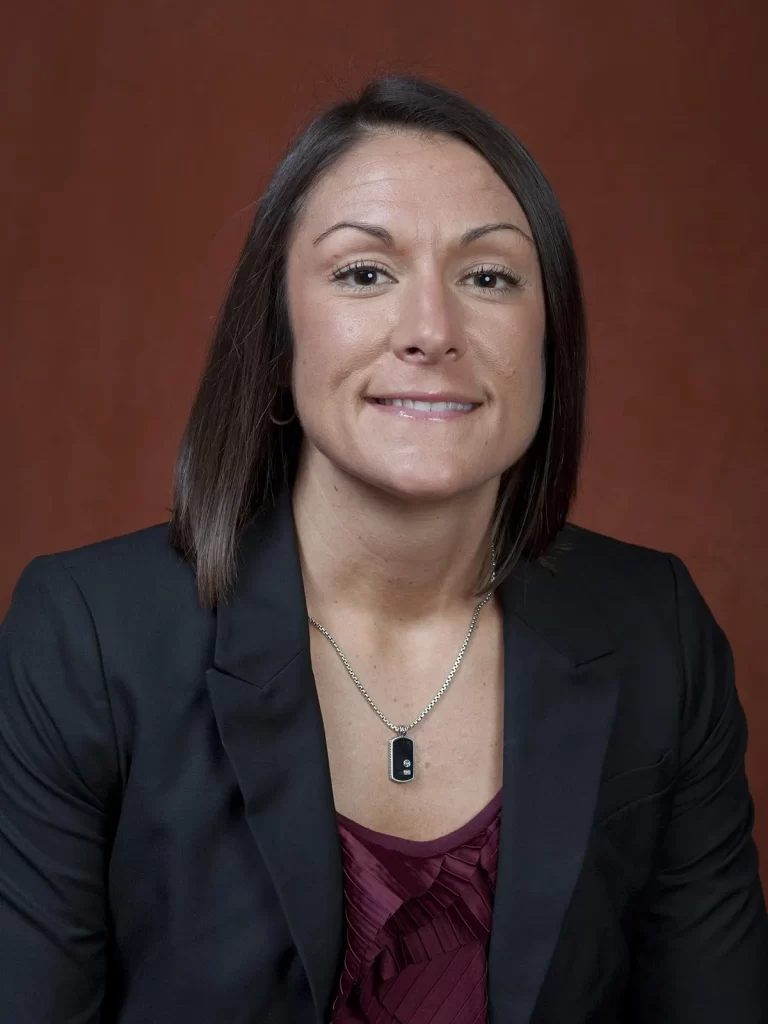
Biography for Vanessa Fuchs
Vanessa Fuchs is a leader with more than 20 years of experience in athletic administration. She joined, WeCOACH as Chief Executive Officer in March 2022. Since being at the helm she has transformed the organization introducing new initiatives and reinvigorating existing programs like the NCAA Women Coaches Academy and Academy 2.0, which in 2023 will see its greatest number of graduates yet. Her tireless dedication has seen WeCOACH’s membership base quadruple in a year. As an organization, WeCOACH leads the game on female mentorship. Prior to joining WeCOACH, she served for 12 years as Senior Associate Athletics Director and Senior Woman Administrator at her alma mater, Florida State University. She herself was a four-year letterwinner for the Seminoles women’s basketball team, co-captain in her senior year and finished her career as a four-time ACC Honor Roll selection. Vanessa graduated Magna Cum Laude with a bachelor’s degree in communications at Florida State University and earned her master’s degree in sport administration from the University of North Carolina.
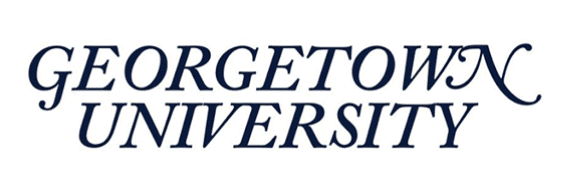

Biography for Al Lattell
Al Lattell is the executive director of the Cooper Athletics Leadership Program (CALP) at Georgetown University. He manages the CALP program, part of a $50M gift to the university, which uses a research-based theoretical leadership framework and participation in athletics to develop young people. His role sees him working closely with the university’s student-athletes to develop their leadership skills which can be applied both on and off the field. He has extensive experience in building leadership development from the ground up and has played the role of mentor himself countless times, both formally and informally. Prior to joining Georgetown, Al served at Johns Hopkins University where he was the assistant director of athletics for student-athlete development and community engagement implementing a multi-year leadership development program. Al also played a pivotal role connecting student-athletes and key stakeholders such as faculty, staff and alums. Al also, worked with SAAC, the Black Student-Athlete Association as well as campus partners to build an inclusive community within the department.


Biography for Johnathan Franklin
Johnathan Franklin is heading into his eighth season with the Los Angeles Rams, as the Director of Social Justice and Football Development. Originally from Los Angeles, Johnathan describes his role and this unique opportunity to make a contribution to his own community as using the power of football as a platform to address education inequities, youth justice and to reassure that all members of the community can rise to prosperity, while providing hope where it does not exist and maintaining it where it does. Johnathan is a recent graduate of the Stanford’s NFL League of Leaders Program through Stanford’s Graduate School of Business. This executive program focused on leadership development, strategic project development, business acumen and design thinking. Johnathan was drafted by the Green Bay Packers as a running back, after an on field tackle resulted in severe injury and medical retirement in the first NFL season of his career, within the month he had reached out to the Green Bay Packers and began an internship that lead to his current role. Johnathan graduated from UCLA with honours and majored in Political Science, he is a recipient of the UCLA Chancellor’s Marshall Award. Johnathan was an outstanding student-athlete, still holds 4 records including the all-purpose and career rushing yards.

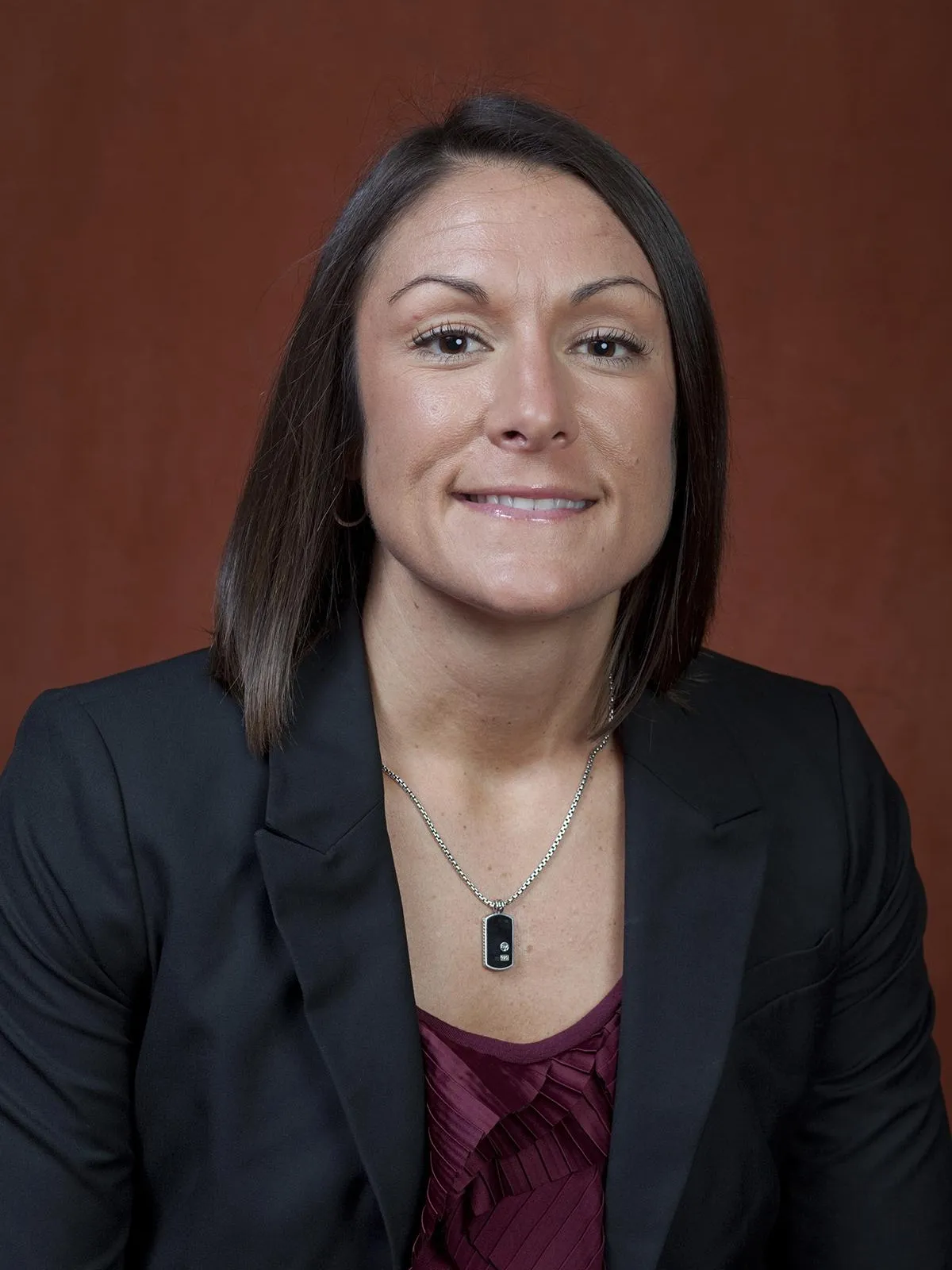
Biography for
Vanessa Fuchs
Vanessa Fuchs is a leader with more than 20 years of experience in athletic administration. She joined, WeCOACH as Chief Executive Officer in March 2022. Since being at the helm she has transformed the organization introducing new initiatives and reinvigorating existing programs like the NCAA Women Coaches Academy and Academy 2.0, which in 2023 will see its greatest number of graduates yet. Her tireless dedication has seen WeCOACH’s membership base quadruple in a year. As an organization, WeCOACH leads the game on female mentorship. Prior to joining WeCOACH, she served for 12 years as Senior Associate Athletics Director and Senior Woman Administrator at her alma mater, Florida State University. She herself was a four-year letterwinner for the Seminoles women’s basketball team, co-captain in her senior year and finished her career as a four-time ACC Honor Roll selection. Vanessa graduated Magna Cum Laude with a bachelor’s degree in communications at Florida State University and earned her master’s degree in sport administration from the University of North Carolina.


Biography for
Al Lattell
Al Lattell is the executive director of the Cooper Athletics Leadership Program (CALP) at Georgetown University. He manages the CALP program, part of a $50M gift to the university, which uses a research-based theoretical leadership framework and participation in athletics to develop young people. His role sees him working closely with the university’s student-athletes to develop their leadership skills which can be applied both on and off the field. He has extensive experience in building leadership development from the ground up and has played the role of mentor himself countless times, both formally and informally. Prior to joining Georgetown, Al served at Johns Hopkins University where he was the assistant director of athletics for student-athlete development and community engagement implementing a multi-year leadership development program. Al also played a pivotal role connecting student-athletes and key stakeholders such as faculty, staff and alums. Al also, worked with SAAC, the Black Student-Athlete Association as well as campus partners to build an inclusive community within the department.


Biography for
Jonathan Franklin
Johnathan Franklin is heading into his eighth season with the Los Angeles Rams, as the Director of Social Justice and Football Development. Originally from Los Angeles, Johnathan describes his role and this unique opportunity to make a contribution to his own community as using the power of football as a platform to address education inequities, youth justice and to reassure that all members of the community can rise to prosperity, while providing hope where it does not exist and maintaining it where it does. Johnathan is a recent graduate of the Stanford’s NFL League of Leaders Program through Stanford’s Graduate School of Business. This executive program focused on leadership development, strategic project development, business acumen and design thinking. Johnathan was drafted by the Green Bay Packers as a running back, after an on field tackle resulted in severe injury and medical retirement in the first NFL season of his career, within the month he had reached out to the Green Bay Packers and began an internship that lead to his current role. Johnathan graduated from UCLA with honours and majored in Political Science, he is a recipient of the UCLA Chancellor’s Marshall Award. Johnathan was an outstanding student-athlete, still holds 4 records including the all-purpose and career rushing yards.
Where to from here?
If you’d like to learn more and watch back our April webinar on ‘Mentoring Success,’ you can access the recording here.
Whether you are an existing client of Athlete Assessments, or if you’re interested in becoming one and would like to discuss your program, our services, and how we can contribute to your success, please reach out and contact us!
Recommended Articles
The coach-athlete relationship, a research backed non-negotiable when it comes to getting the best and sustained performance out of your athletes.
To determine what the defining factors are of a successful mentoring program, we explore some of the top initiatives from different corners of the world. While ratios, cohorts, sports, and program structures differ within these formalized mentoring programs, what remains consistent are the considerable benefits reaped by all involved.
In this exciting analysis of sport business, authors estimate the global sports market; which includes events, infrastructure, training, plus the manufacture and retail of sporting goods, to be worth around $700 billion. They attribute the market’s rapid rise in value to the entrepreneurial actions of key players in media and sport management.


